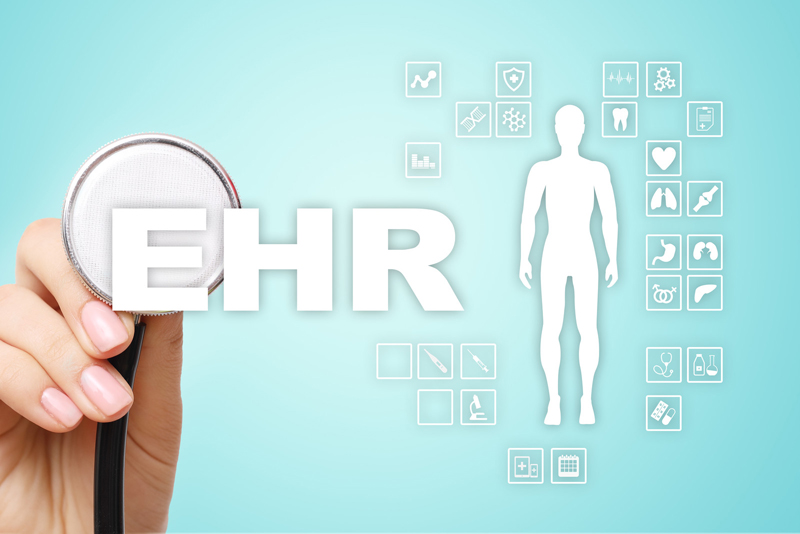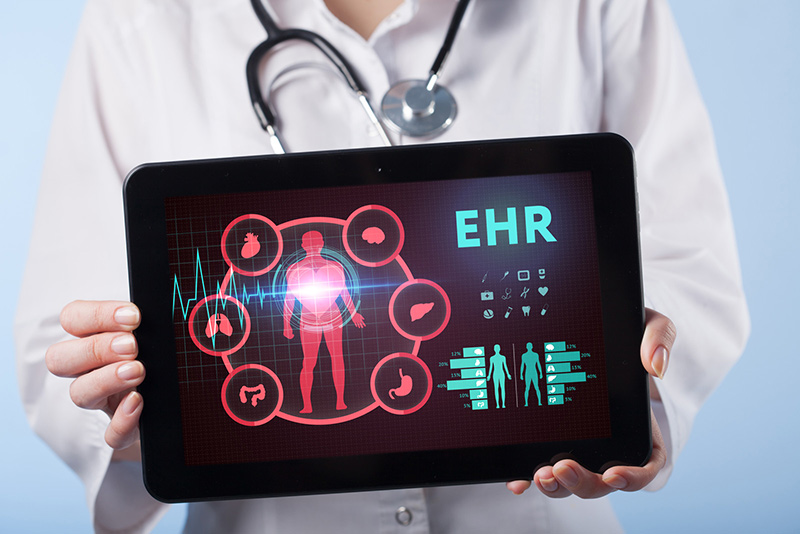Electronic healthcare records are being used across the healthcare spectrum with both physicians and patients enjoying the benefits associated with this healthcare documentation system. Processes such as medical record analysis have also become easier, making medical review services more efficient. However, there is a downside to the technology – doctors are hard pressed for time with all the mandatory documentation they have to complete and as a result are unable to care properly for their patients. Most patients complain that doctors are not paying attention to them; instead they are focused on their computers.
Physicians are so bogged down by their Electronic Health Record systems that there is a high amount of burnout. They are physically and emotionally drained out and experience a low sense of professional achievement. A recent post in COMPUTERWORLD says that according to Dr. Alain Chaoui, former president of the Massachusetts Medical Society (MMS), around 50% to 70% of physicians are experiencing burnout symptoms due to EMR-related workloads. According to him, more and more doctors are leaving their profession through early retirement or moving to fields other than healthcare because of fatigue. Yet others cut down their patient hours to handle the administrative functions of healthcare. He points out that it can take as long as 45 minutes for a physician to schedule a CT scan for a patient via an EHR system or over the telephone. Moreover, additional time has to be spent persuading an insurance company to cover the procedure.
The most common concerns associated with the EHR are:
- A great deal of time is required to input data. This leads to loss of time with the patient and for patient care.
- EHR systems that don’t match with the practice workflow cause major disruptions.
- Interoperability issues.
- EHR systems can be quite expensive.
Many experts in the field point out that the concern has intensified because of regulator changes in how healthcare facilities receive Medicare and Medicaid reimbursements. Facilities that were earlier reimbursed on the meaningful use of their EHRs have to now attest as ACOs (Accountable Care Organizations), wherein quality measures are linked to patient care and costs as well as the comprehensiveness of data recorded in the medical records.
Leading Electronic Health Record vendors say that physician dissatisfaction with EHR is due to a lack of training rather than software issues. Healthcare organizations should focus on offering superior training opportunities for providers and providers must develop greater mastery of EHR functionality.
How can health systems and medical practices make the best use of their EHR?
- First, they should choose the right Electronic Health Record for their specialty. This will make the learning process easier because specialty-specific EHRs have functions that are already customized for each specialty’s workflow.
- The chosen Electronic Health Record must fit ideally into their actual workflows. Patient data should be available on a single screen.
- Patients should trust the EHR system. They should be confident that their data is safe and will not be stolen. Providers and nurses should be confident that the Electronic Health Record they have is the best available and has been implemented properly. They should also be assured that in case they spot a problem or have an idea to share, it will be considered or put into practice.
- Physicians should take time to learn the Electronic Health Record system fully and take full advantage of its capabilities, right from learning common shortcuts to customizing the software to suit their unique workflow more fittingly.
- Voice-driven EHRs will allow you to document your notes much faster. You can order prescriptions as well as send referral replies very quickly.
There is no doubt that EHRs can prove advantageous, improve healthcare, and make it much easier to provide medical review services for doctors and lawyers who need to review medical documentation. The important considerations when it comes to having a good EHR system are choosing the apt Electronic Health Record, implementing it properly, and educating users thoroughly.




